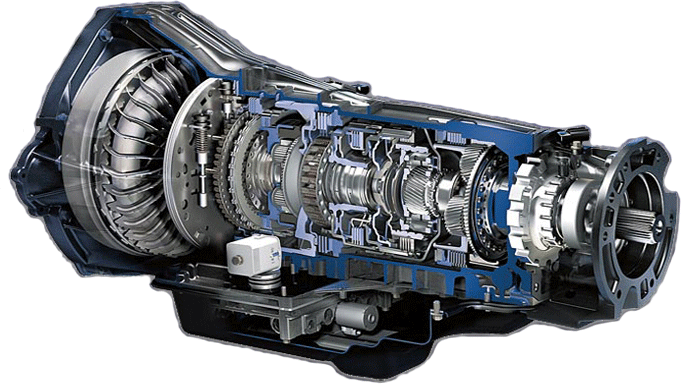Transmission & Clutch Repair
 |
At Capital Transmission, we offer thorough diagnostics and transmission repair services.
Whether your domestic or import vehicle has a problem with its Standard or Automatic Transmission, Clutch, Torque Converter, CVT, Transfer Case, Differential, or 4×4 system, we can diagnose and repair your transmission to get you on your way again.
We are proud of our ability to provide our customers with a very high standard of service in driveline, clutch, and transmission repair.
Today's transmission is much more complicated than it was in the past. . It is made up of hundreds of complex components that enable your vehicle to move. The transmission fluid also serves a multitude of purposes. It cools, lubricates, transmits force, transmits pressure, inhibits varnish build-up and protects the transmission. Regular maintenance helps keep the transmission fluid clean and the transmission running smoothly.
In order to properly repair your vehicle's transmission, these components must be dismantled, cleaned and inspected for wear to provide you with an accurate assessment of your transmission's tolerance levels. All worn and/or damaged parts are either repaired or replaced. After the parts are thoroughly inspected and repaired, they are reassembled, adjusted and tested for proper operation.
Some transmission repairs require only an adjustment that can be made without removing the entire transmission. Newer model cars that are computer controlled can sometimes have faulty sensors or bad connections. Once the source of the problem part is identified it can be replaced or repaired.
Older automobiles that are experiencing transmission problems may require adjustments to parts such as bands or throttle cables.
Repairs can also include a Reseal. If your vehicle is leaving spots on your driveway you may be leaking transmission fluid in which case a reseal job is needed. A technician will perform a lift inspection to determine where the leak is occurring and then perform the reseal job.
Harsh driving conditions can devastate the life of the transmission fluid, which can then lead to transmission failure. Old and dirty transmission fluid can lead to the need for an entirely new transmission. Regular transmission maintenance services can help to prevent transmission failures and keep your transmission in Road Ready condition.
To help familiarize you with the types of difficulties that may arise with the transmission, we have listed a few of the common malfunctions that can occur.
|
These can all be signs of a transmission problem. But you don't have to wait until you have a problem before you service your transmission. Having your vehicle checked and serviced at recommend intervals will prolong the life of your transmission.
The most common failure of transmissions comes from excessive heat buildup. This may occur from your transmission fluid breaking down and not being changed as recommended, or driving your car frequently in heavy stop and go in traffic. Having an external transmission cooler installed will not only help your transmission run cooler, but prolong the life expectancy of the transmission.
The cost of repairs varies widely, depending on type of repair. Your vehicle may only require an external minor repair, while some may require an overhaul (rebuilt). Cost factors to consider on major rebuild jobs are the type of transmission, rear wheel drive, overdrive, all wheel drive and four by four, which is having a transfer case component to "transfer" motion to all four wheels.
Electronic controlled transmissions work on the same principal, but may have different components, where one type may have a few simple solenoids or sensors, others may also have a TCM (transmission control module) or may also depend on PCM (power control module) in addition to the sensors and solenoids. These are all connected by a harness, which, over time may become brittle, rub up against another component and in some rural areas, rodents can enter a warm vehicle or nest in them after they decide to chew on the wiring creating a short.
